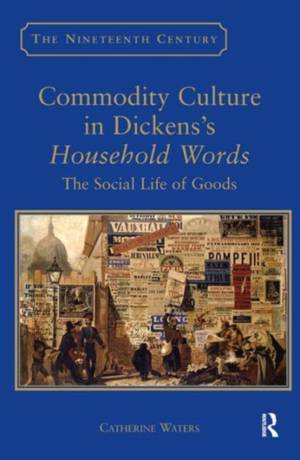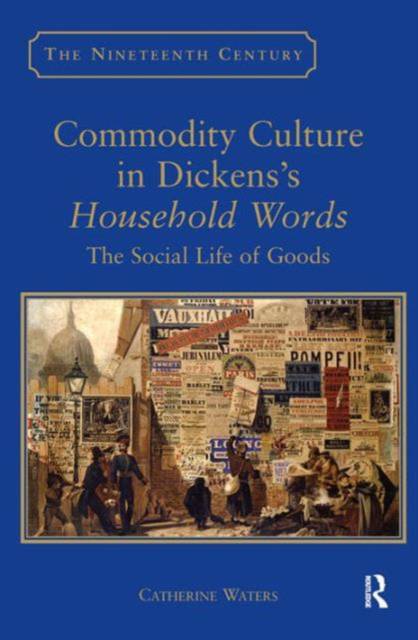
Bedankt voor het vertrouwen het afgelopen jaar! Om jou te bedanken bieden we GRATIS verzending (in België) aan op alles gedurende de hele maand januari.
- Afhalen na 1 uur in een winkel met voorraad
- In januari gratis thuislevering in België
- Ruim aanbod met 7 miljoen producten
Bedankt voor het vertrouwen het afgelopen jaar! Om jou te bedanken bieden we GRATIS verzending (in België) aan op alles gedurende de hele maand januari.
- Afhalen na 1 uur in een winkel met voorraad
- In januari gratis thuislevering in België
- Ruim aanbod met 7 miljoen producten
Zoeken
€ 305,45
+ 610 punten
Uitvoering
Omschrijving
In 1850, Charles Dickens founded Household Words, a weekly miscellany intended to instruct and entertain an ever-widening middle-class readership. Published in the decade following the Great Exhibition of 1851, the journal appeared at a key moment in the emergence of commodity culture in Victorian England. Alongside the more well-known fiction that appeared in its pages, Dickens filled Household Words with articles about various commodities-articles that raise wider questions about how far society should go in permitting people to buy and sell goods and services: in other words, how far the laissez-faire market should extend. At the same time, Household Words was itself a commodity. With marketability clearly in view, Dickens required articles for his journal to be 'imaginative, ' employing a style that critics ever since have too readily dismissed as mere mannerism. Locating the journal and its distinctive handling of non-fictional prose in relation to other contemporary periodicals and forms of print culture, this book demonstrates the role that Household Words in particular, and the Victorian press more generally, played in responding to the developing world of commodities and their consumption at midcentury.
Specificaties
Betrokkenen
- Auteur(s):
- Uitgeverij:
Inhoud
- Aantal bladzijden:
- 192
- Taal:
- Engels
- Reeks:
Eigenschappen
- Productcode (EAN):
- 9780754655787
- Verschijningsdatum:
- 28/10/2008
- Uitvoering:
- Hardcover
- Formaat:
- Genaaid
- Afmetingen:
- 156 mm x 234 mm
- Gewicht:
- 449 g

Alleen bij Standaard Boekhandel
+ 610 punten op je klantenkaart van Standaard Boekhandel
Beoordelingen
We publiceren alleen reviews die voldoen aan de voorwaarden voor reviews. Bekijk onze voorwaarden voor reviews.









